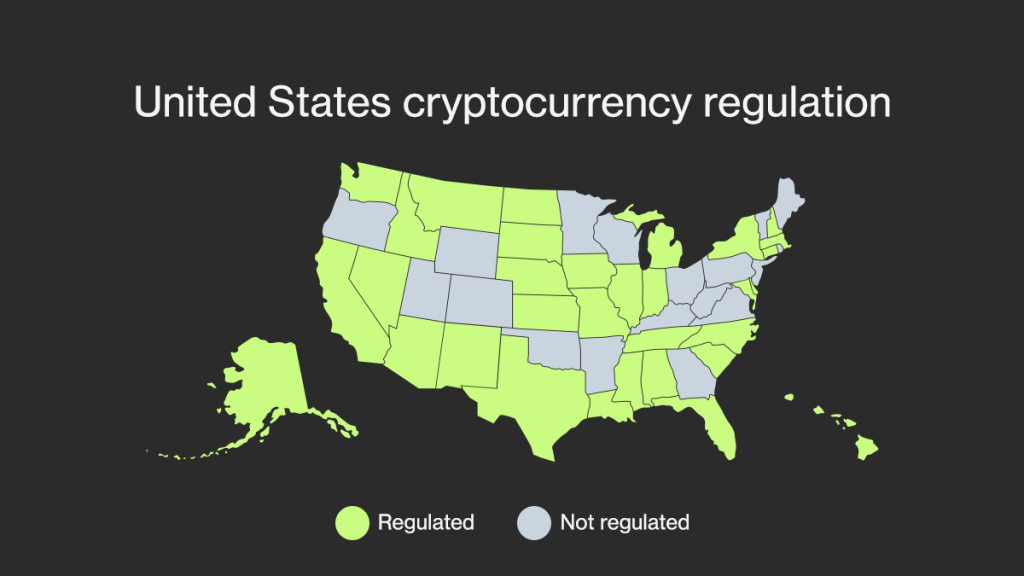The Evolving Landscape of Cryptocurrency Regulations in America
In this special moment, we aim to explore the absorbing subject around The Evolving Landscape of Cryptocurrency Regulations in America. Let’s gather intriguing information and offer exciting insights to the readers.
Video about The Evolving Landscape of Cryptocurrency Regulations in America
The Evolving Landscape of Cryptocurrency Regulations in America

The rapid growth and increasing popularity of cryptocurrencies have raised concerns among regulators, policymakers, and the financial community in the United States. As the world’s largest economy, the United States has been at the forefront of shaping the regulatory framework for cryptocurrencies. In this article, we will delve into the current state of cryptocurrency regulations in America, highlighting the key developments, challenges, and future prospects.
A Brief History of Cryptocurrency Regulations in the United States
The first cryptocurrency, Bitcoin, was launched in 2009. Initially, cryptocurrencies were considered a fringe phenomenon, and regulatory oversight was largely absent. However, as the market grew, so did concerns about the lack of regulation. In 2013, the Financial Crimes Enforcement Network (FinCEN) issued guidance on the application of money laundering regulations to virtual currencies. This marked the beginning of a more structured approach to regulating cryptocurrencies in the United States.
Current Regulatory Framework
The current regulatory framework for cryptocurrencies in the United States is complex and multi-layered. Several federal agencies and state governments have issued guidelines, regulations, and laws governing the use of cryptocurrencies. The key regulators include:
- Financial Crimes Enforcement Network (FinCEN): FinCEN is responsible for enforcing anti-money laundering (AML) and combating the financing of terrorism (CFT) regulations in the United States. In 2013, FinCEN issued guidance on the application of AML/CFT regulations to virtual currencies, defining "virtual currency" as a medium of exchange that operates independently of a central bank or government.
- Securities and Exchange Commission (SEC): The SEC regulates securities markets and enforces federal securities laws. In 2017, the SEC issued guidance on the application of securities laws to initial coin offerings (ICOs), determining that most ICOs were securities offerings subject to registration and disclosure requirements.
- Commodity Futures Trading Commission (CFTC): The CFTC regulates commodities and futures markets in the United States. In 2017, the CFTC determined that virtual currencies, such as Bitcoin, were commodities subject to CFTC regulation.
- Internal Revenue Service (IRS): The IRS treats cryptocurrencies as property, subject to capital gains tax. In 2014, the IRS issued guidance on the tax treatment of virtual currencies.
- State Governments: Many states, such as New York, have introduced regulations and licenses for cryptocurrency businesses, such as exchanges and wallets.
Key Challenges
Despite the progress made in regulating cryptocurrencies, several challenges remain:
- Lack of Clarity: The regulatory framework is complex and sometimes contradictory, creating uncertainty for businesses and individuals operating in the cryptocurrency space.
- Jurisdictional Issues: Cryptocurrencies are global, but regulations vary across jurisdictions, making it challenging for businesses to comply with multiple regulatory regimes.
- Security and Cybersecurity Risks: Cryptocurrencies are vulnerable to cyber threats, and regulatory agencies are still grappling with how to address these risks.
- Market Volatility: The cryptocurrency market is known for its high volatility, which can make it challenging for regulators to develop effective regulations.
Future Prospects
The regulatory landscape for cryptocurrencies in the United States is likely to evolve in response to technological advancements and market developments. Some potential developments include:
- National Cryptocurrency Regulation: There have been several attempts to introduce national cryptocurrency regulations in Congress. Such legislation could provide clarity and consistency across the country.
- Cryptocurrency Guidance from the SEC: The SEC has been working on cryptocurrency guidance, which could provide more clarity on the regulation of ICOs and other cryptocurrency offerings.
- Increased Focus on Cybersecurity: Regulatory agencies are likely to focus more on cybersecurity risks associated with cryptocurrencies, potentially leading to more stringent security requirements for exchanges and wallets.
- Development of Central Bank Digital Currencies: The Federal Reserve has been exploring the development of a central bank digital currency. This could have significant implications for the cryptocurrency market and regulation.
Best Practices for Compliance
Closure
We trust this article has brought valuable information about The Evolving Landscape of Cryptocurrency Regulations in America. We hope this article has been beneficial to you. Catch you in our next article!.